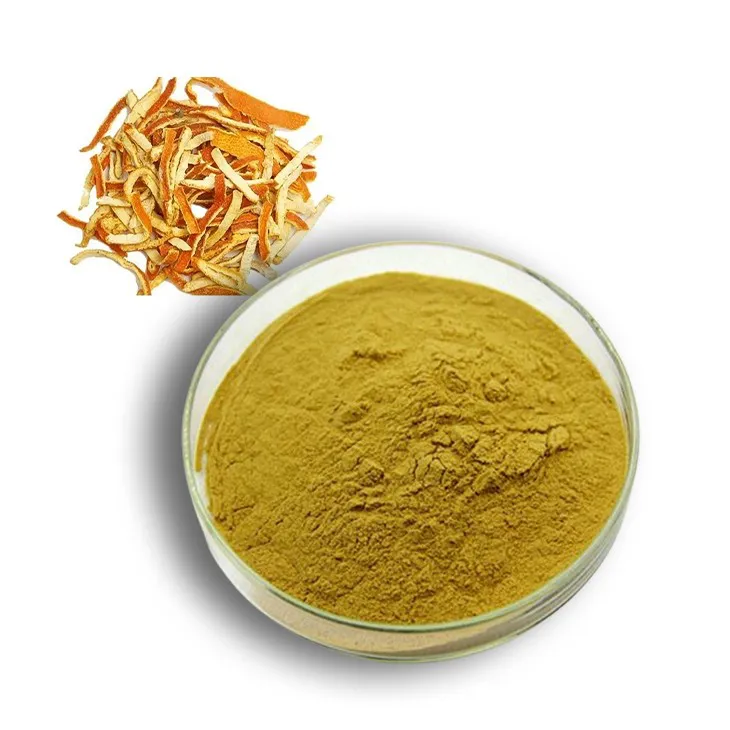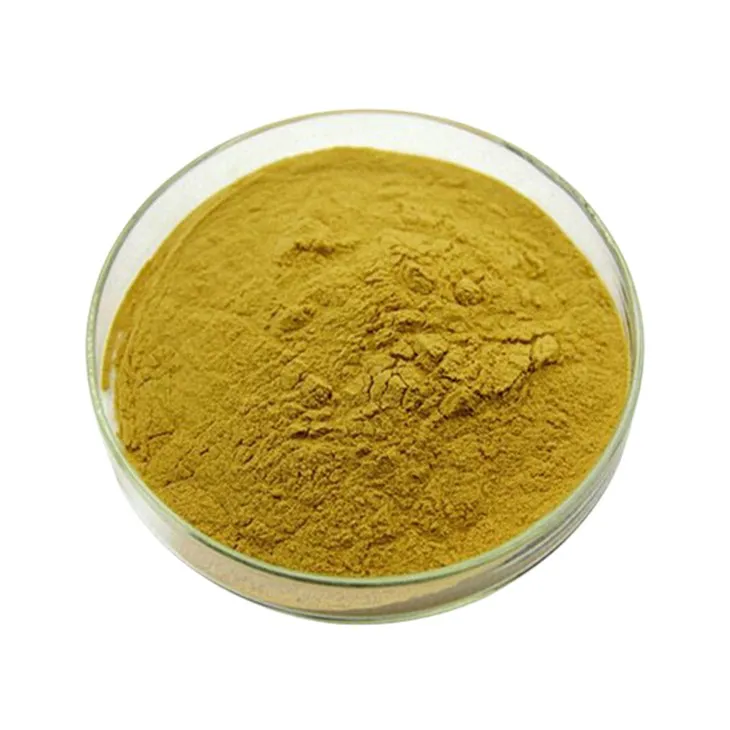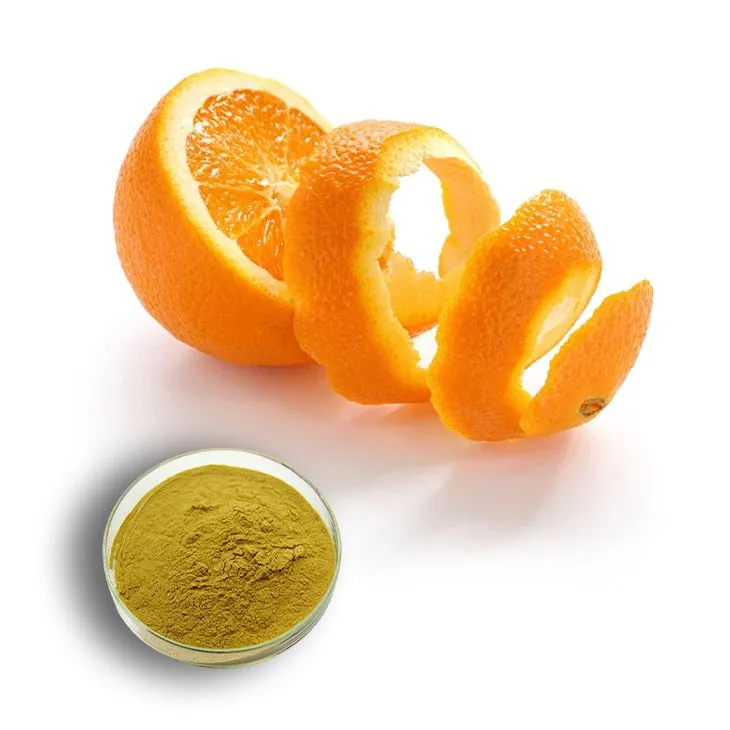- 0086-571-85302990
- sales@greenskybio.com
5 Benefits of Hesperidin + Dosage, Side Effects
2024-11-14

1. Introduction to Hesperidin
Hesperidin is a flavanone glycoside found abundantly in citrus fruits such as oranges, lemons, and grapefruits. It has been a subject of great interest in the field of health and nutrition due to its potential therapeutic properties.

2. The Five Benefits of Hesperidin
2.1. Antioxidant Activity
Hesperidin is a powerful antioxidant. It helps in neutralizing free radicals in the body. Free radicals are unstable molecules that can cause damage to cells, DNA, and proteins. Oxidative stress, which is an imbalance between the production of free radicals and the body's ability to detoxify them, is associated with various chronic diseases such as cancer, heart disease, and neurodegenerative disorders.
By scavenging free radicals, hesperidin can protect cells from oxidative damage. It has been shown to increase the activity of antioxidant enzymes in the body, such as superoxide dismutase (SOD) and glutathione peroxidase (GSH - Px). This antioxidant activity can contribute to overall health and may help in preventing premature aging.
2.2. Anti - Inflammatory Effects
Inflammation is a natural response of the body to injury or infection. However, chronic inflammation can lead to a host of health problems. Hesperidin has demonstrated significant anti - inflammatory properties.
It can inhibit the production of inflammatory mediators such as cytokines (e.g., interleukin - 6 and tumor necrosis factor - α) and prostaglandins. These mediators play a crucial role in the inflammatory process. By reducing their production, hesperidin can help to alleviate inflammation in various parts of the body, including joints (which may be beneficial for arthritis sufferers), the cardiovascular system, and the digestive tract.
2.3. Cardiovascular Health
Hesperidin offers several benefits for cardiovascular health.
- It can help in reducing blood pressure. High blood pressure is a major risk factor for heart disease and stroke. Hesperidin may work by relaxing blood vessels, thereby improving blood flow and reducing the pressure on the arterial walls.
- Another important aspect is its role in improving lipid profiles. It can lower levels of LDL (low - density lipoprotein) cholesterol, often referred to as "bad" cholesterol, while increasing HDL (high - density lipoprotein) cholesterol, known as "good" cholesterol. This helps in reducing the risk of atherosclerosis, a condition in which plaque builds up in the arteries.
- Furthermore, hesperidin has anti - platelet aggregation properties. Platelets are blood cells that play a key role in blood clotting. Excessive platelet aggregation can lead to the formation of blood clots, which can block blood vessels and cause heart attacks or strokes. By inhibiting platelet aggregation, hesperidin can help to prevent such thrombotic events.
2.4. Immune System Support
A healthy immune system is essential for protecting the body from infections and diseases. Hesperidin can contribute to immune system support.
It has been shown to enhance the function of immune cells such as macrophages and lymphocytes. Macrophages are responsible for engulfing and destroying foreign invaders such as bacteria and viruses. Lymphocytes play a crucial role in the adaptive immune response, including the production of antibodies. By boosting the function of these immune cells, hesperidin can help the body to better defend itself against pathogens.
Moreover, hesperidin may also have a role in modulating the immune response. It can help to prevent an over - active immune response, which can lead to autoimmune diseases, as well as boost the immune system when it is weakened, for example, during periods of stress or illness.
2.5. Skin Health
Hesperidin can also have a positive impact on skin health.
Due to its antioxidant and anti - inflammatory properties, it can protect the skin from damage caused by environmental factors such as UV radiation, pollution, and oxidative stress. This can help in preventing premature skin aging, including the formation of wrinkles and age spots.
It may also improve skin hydration and elasticity. Some studies suggest that hesperidin can stimulate the production of collagen in the skin. Collagen is a protein that provides structure and elasticity to the skin. By increasing collagen production, hesperidin can help to keep the skin firm and supple.

3. Dosage of Hesperidin
The appropriate dosage of hesperidin can vary depending on several factors, including the purpose of use, individual health status, and age.
For general health promotion, a dosage of 50 - 500 mg per day has been suggested in some studies. However, when using hesperidin for specific health conditions, it is advisable to consult a healthcare professional.
For example, in the case of high blood pressure or cholesterol management, the dosage may need to be adjusted based on the severity of the condition and the individual's response to treatment. Additionally, pregnant or breastfeeding women should be especially cautious and seek medical advice before taking hesperidin supplements, as there is limited research on its safety in these populations.

4. Side Effects of Hesperidin
Hesperidin is generally considered safe when consumed in normal dietary amounts through foods such as citrus fruits. However, when taken in supplement form, there may be some potential side effects.
Some individuals may experience mild gastrointestinal symptoms such as stomach upset, nausea, or diarrhea. These side effects are usually rare and may occur when taking high doses of hesperidin supplements. If such symptoms occur, it is recommended to reduce the dosage or discontinue use and consult a healthcare provider.
There is also a theoretical risk of allergic reactions in individuals who are allergic to citrus fruits, as hesperidin is derived from citrus. Allergic reactions may include symptoms such as skin rashes, itching, swelling, or difficulty breathing. In such cases, hesperidin should be avoided.

5. Conclusion
Hesperidin offers a range of potential health benefits, including antioxidant, anti - inflammatory, cardiovascular, immune - enhancing, and skin - health - promoting effects. While it is generally safe, it is important to be aware of the appropriate dosage and potential side effects, especially when taking it in supplement form. As with any dietary supplement, it is advisable to consult a healthcare professional before starting hesperidin supplementation, especially if you have pre - existing health conditions or are taking other medications.
FAQ:
What is Hesperidin?
Hesperidin is a flavonoid, which is a type of natural compound commonly found in citrus fruits. It has antioxidant properties and is being studied for various potential health benefits.
What are the main benefits of Hesperidin?
One of the main benefits is its antioxidant activity. It helps in neutralizing free radicals in the body, which can reduce oxidative stress. Another benefit is its potential to improve blood circulation by strengthening blood vessels. It may also have anti - inflammatory effects, which can be beneficial for various inflammatory conditions. Additionally, it might play a role in supporting heart health and could potentially help in managing cholesterol levels.
How much Hesperidin should be taken?
The appropriate dosage of Hesperidin can vary depending on various factors such as the individual's health condition and the purpose of taking it. In general, for dietary supplement use, dosages typically range from 500 mg to 1000 mg per day. However, it is always best to consult a healthcare professional before starting any new supplement regimen.
Are there any side effects of taking Hesperidin?
Hesperidin is generally considered safe when taken in appropriate amounts. However, some people may experience mild side effects such as digestive issues like stomach upset or diarrhea. In rare cases, allergic reactions may occur, especially in those who are allergic to citrus fruits.
Can Hesperidin be obtained from food sources?
Yes, Hesperidin can be obtained from food sources. Citrus fruits such as oranges, lemons, and grapefruits are rich in Hesperidin. Consuming these fruits as part of a balanced diet can provide a natural source of this beneficial compound.
Related literature
- The Role of Hesperidin in Health and Disease"
- "Hesperidin: A Review of Its Pharmacological Properties"
- "Beneficial Effects of Hesperidin on Cardiovascular Health"
- ▶ Hesperidin
- ▶ citrus bioflavonoids
- ▶ plant extract
- ▶ lycopene
- ▶ Diosmin
- ▶ Grape seed extract
- ▶ Sea buckthorn Juice Powder
- ▶ Beetroot powder
- ▶ Hops Extract
- ▶ Artichoke Extract
- ▶ Reishi mushroom extract
- ▶ Astaxanthin
- ▶ Green Tea Extract
- ▶ Curcumin Extract
- ▶ Horse Chestnut Extract
- ▶ Other Problems
- ▶ Boswellia Serrata Extract
- ▶ Resveratrol Extract
- ▶ Marigold Extract
- ▶ Grape Leaf Extract
- ▶ blog3
-
High purity olive leaf extract
2024-11-14
-
Lavender oil extraction method
2024-11-14
-
100% organic virgin sea buckthorn fruit oil
2024-11-14
-
Lotus leaf extract powder factory in China
2024-11-14
-
China aged garlic extract supplier
2024-11-14
-
Deer antler extract powder manufacturer
2024-11-14
-
Saw palmetto extract vs whole herb
2024-11-14
-
Grape Seed Extract
2024-11-14
-
Tinospora cordifolia extract
2024-11-14
-
Europen Bilberry Extract
2024-11-14
-
Buckthorn bark extract
2024-11-14
-
Shikonin
2024-11-14
-
Ginseng Root Extract
2024-11-14
-
Garcinia Cambogia Extract
2024-11-14
-
White mustard seed extract
2024-11-14
-
Maca Extract
2024-11-14
-
Motherwort Extract
2024-11-14





















